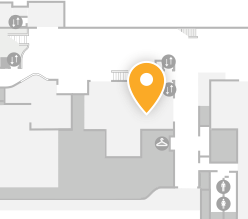
Still life with Cauliflower, Basket of Fish, Eggs, and Leeks, and Kitchen Utensils (Primary Title)
Luis Meléndez, Spanish, 1715 - 1780 (Artist)
Meléndez began his career as a portrait painter before
dedicating his efforts to still-life painting beginning in
the late 1750s and becoming Spain’s most accomplished
painter in that genre. He drew upon the 17th-century
still-life tradition (bodegón) exemplified in the works
of painters such as Francisco de Zurbarán (1598–1664),
in which pantry items were laid out upon a simple
wooden table or stone slab. Meléndez shared with Dutch
and Flemish artists a penchant for detailed realism,
rendering a variety of textures within a single composition. His emphasis on native foods and locally
made crafts, however, set him apart from his northern
counterparts, who tended to depict imported foods
and luxury items. His decision to showcase a head
of cauliflower in this painting hints at his royal connections and extensive knowledge of local produce, since
the cruciferous vegetable was grown in the market
garden at the Royal Palace of Aranjuez and had only
recently been introduced into the Spanish diet. The
other victuals—eggs, salt cod, leeks, and garlic—piled
abundantly in this tightly packed composition comprise
the kind of modest meal consumed by Catholics on
Fridays and throughout the forty days of Lent.
The Jordan and Thomas A. Saunders III Collection
Some object records are not complete and do not reflect VMFA's full and current knowledge. VMFA makes routine updates as records are reviewed and enhanced.

